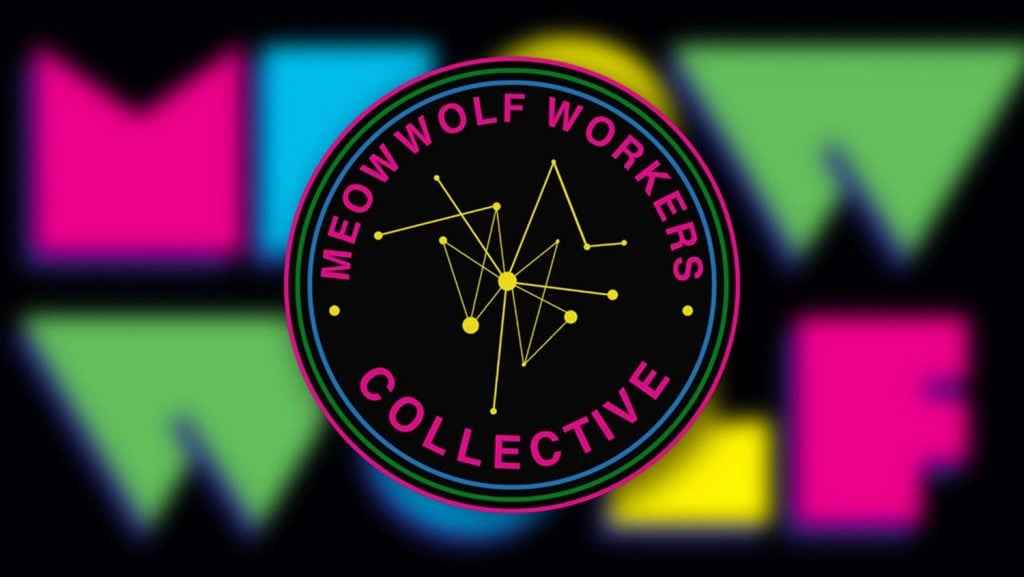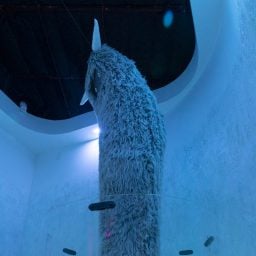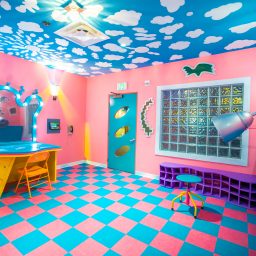Employees at Meow Wolf, the Santa Fe entertainment company that creates immersive art-type installation spaces, have formed a union.
The Meow Wolf Workers Collective, as the group is called, announced plans to align with the Communications Workers of America, which represents telecommunications, education, healthcare, and broadcast and cable television workers, among others.
The Meow Wolf employees are asking company leadership to “collaborate and honor the collective spirit that has made Meow Wolf a success,” in a statement quoted by the Santa Fe Reporter.
But the company has already signaled resistance to the idea.
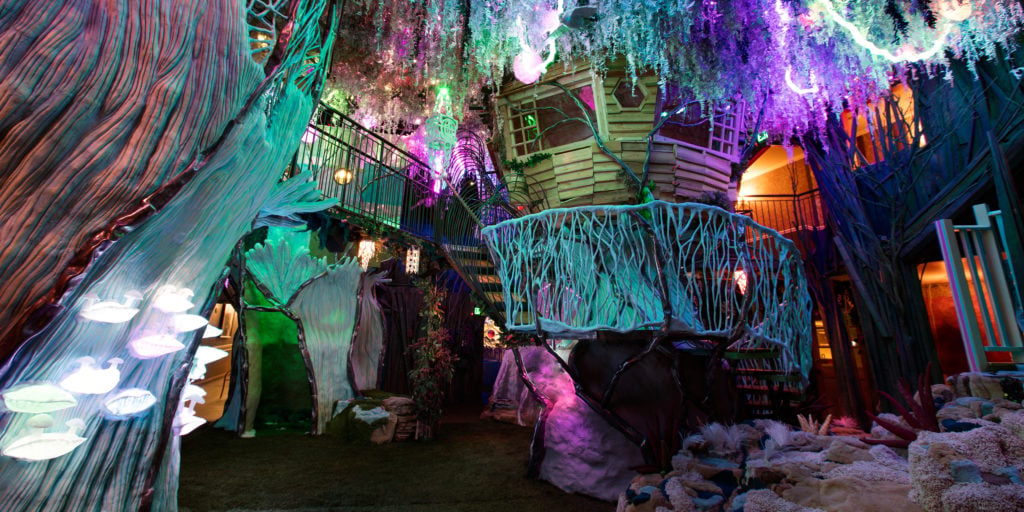
Meow Wolf, House of Eternal Return. Photo by Kate Russell, courtesy of Meow Wolf.
While saying in a statement that the Meow Wolf “recognizes and respects our employees’ right to organize,” the company maintained that “the policies, practices and culture already in place make our company a great place to work and we value our ability to work directly with employees. As such, we feel Meow Wolf works best without a union.”
The union countered that organizing “will allow employees to have a seat at the table with the board, OCEO, and founders of the company” in an email to Artnet News.
Founded as a scrappy art collective in 2008, Meow Wolf became a phenomena when it opened the House of Eternal Return, its Santa Fe space in 2016, quickly morphing into multi-million dollar operation.
“As small companies grow, the inevitable hierarchy of a corporation forms, and this comes with lots of cultural baggage that we feel Meow Wolf is uniquely situated to crack open and evolve into something better,” the union added. “Long term, the goal is to work fully in line with Meow Wolf’s vision of building a more inclusive, diverse, and generally amazing place to work so that we can give Meow Wolf experiences to as many people as possible.”
If Meow Wolf does not agree to formally acknowledge the union, the National Labor Relations Board requires more than half of the company’s workers vote to organize in a formal election. More than half of Meow Wolf employees have already signed a petition in favor of organizing, according to New Mexico news outlet KOB4.

The exterior of Meow Wolf’s House of Eternal Return in Santa Fe, New Mexico on its first anniversary. Image courtesy of Wikimedia.
“We are seeking employment protection,” Bill Rodgers, one of the union’s organizers, told the Santa Fe New Mexican. “We want to make sure pay is equitable across the board. We want opportunities for career growth so people know where they are with their career.”
The demands listed on the union website, which was launched in February, include “employment protections, equitable pay practices, inclusive opportunities for career growth and creativity, and a diverse workplace that is free from discrimination and harassment of any kind.” It describes labor organization as offering “protection from outsourcing, layoffs, crunch, and other unilateral decisions by management.”
The move comes after the elimination of over half the company’s staff in April after it shuttered its Santa Fe flagship due to the coronavirus. The space, which has yet to reopen, received a $6.6 million Paycheck Protection Program loan from the federal government.
But struggles were on the horizon even before the country entered lockdown. As non-traditional art-type spaces such as the Museum of Ice Cream and the Color Factory began proliferating across the country, Meow Wolf had unveiled plans to expand to Denver, Las Vegas, Phoenix, and Washington, DC, raising $158 million to open new venues.
“The company grew too big, too fast, without a clear view about what is truly core to us, what core contributions we must make to our projects and how we should organize our projects,” Meow Wolf co-CEO Jim Ward said during a company meeting in April, according to the Santa Fe Reporter, which reports that layoffs were already on the table before the pandemic hit.
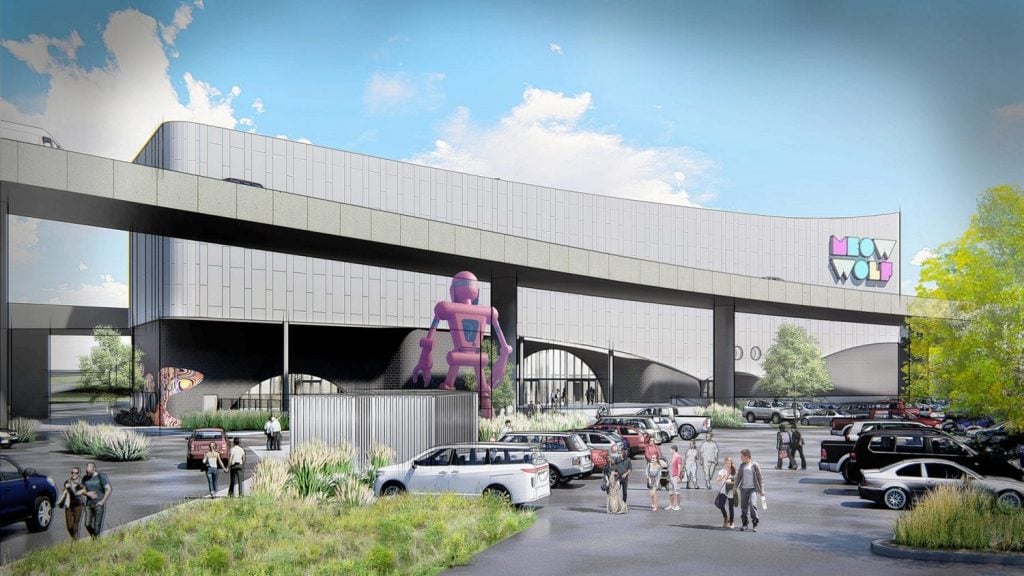
Meow Wolf’s planned Denver location is slated to open in 2021. Rendering courtesy of Meow Wolf.
Meow Wolf’s explosive growth has led to tension within the one-time art collective that originated the company.
Artist Lauren Adele Oliver sued the company in March, claiming that it violated her copyright for Space Owl, one of the main attractions at House of Eternal Return. The lawsuit alleges that Oliver was promised an “artist revenue share,” but that she did not receive her due profits after Meow Wolf became hugely successful, even as Space Owl was featured prominently in merchandise created without her approval.
The company has also settled two discrimination suits filed in 2019 by employees in Santa Fe and Denver.
The fledgling union is just the latest US cultural institution to take steps to organize, following similar efforts across the globe, from the Tenement Museum and the New Museum in New York to the Museum of Contemporary Art in Los Angeles and the Tate in the UK.
“In the face of uncertainty on a global scale due to COVID, it is time to stand up and point cultural institutions in a new direction for the 21st century,” the union told Artnet News.
“Meow Wolf, which believes radical art can change the world, taught us to rethink the way we work together,” the Meow Wolf Workers Collective say in a statement on the union’s website. “Now we ask Meow Wolf to rethink the way it works with us.”
